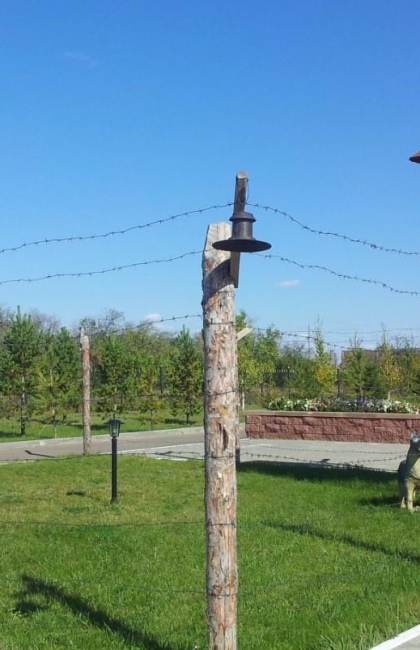ALZhIR Memorial Complex
From 1938 to 1953, in the Akmola Region of Kazakhstan, which was then a part of the USSR, a GULAG labor camp known as ALZhIR operated. This camp primarily housed the family members of individuals accused of betraying the Motherland. Over 18,000 women were imprisoned in this camp during its existence.
A Tragic Past
The name ALZhIR (АЛЖИР) stands for Akmola Camp for the Wives of Traitors to the Motherland (Акмолинский Лагерь Жен Изменников Родины), a name coined by the prisoners themselves. The majority of those interned in this camp were not guilty of any crimes but were simply related to individuals convicted of political offenses (the so-called traitors to the Motherland). These women – mothers, sisters, and daughters – were forcibly relocated to the Akmola camp. It’s noteworthy that even many traitors to the Motherland were not actually criminals. Instead, they could be members of the clergy, former members of political parties other than the communist party, or kulaks (higher-income farmers who owned large farms). Bolsheviks saw these people as anti-Soviet elements.
Life in ALZhIR was marked by harsh conditions. The women had to construct their own barracks and sleeping arrangements due to overcrowding. They toiled in agricultural labor, cultivating vegetables, fruits, and melons, and also engaged in clothing production. Their meager diet, consisting of stale bread and unappetizing porridge, severely affected their health and well-being. Communication with their families was prohibited, and the prisoners were stripped of their identities – their names, nationalities, and professions erased. The camp was surrounded by two rows of barbed wire, and upon entry, each prisoner was assigned an identification number. The adobe barracks offered little protection from the harsh Central Kazakhstan winters.

Official records indicate that 8,000 repressed women were housed there when the camp first opened. Women from all corners of the USSR, including Georgia, Azerbaijan, Ukraine, Belarus, Moscow, Leningrad, and more, were exiled to ALZhIR. Over time, the number of inmates swelled, and they were transferred to other camps. Pregnant women were compelled to give birth within the camp and could only see their children after a grueling day of labor. Infants were cared for by fellow inmates, and at the age of three, they were sent to orphanages. Although the camp was officially closed in 1950, the prisoners were not allowed to return to their previous lives until the rehabilitation process began in 1958.
Local residents had mixed feelings about the repressed women. Some viewed them as traitors, while others expressed sympathy and provided them with kurt, small pieces of dry cheese that resemble stones, which didn't arouse suspicion among the guards.
A Promising Present
On May 31, 2007, in the village of Akmol, at the former site of the camp, a museum and memorial complex were inaugurated to commemorate the victims of political repression and totalitarianism. An arched metal structure, known as the Arch of Sorrow, stands at the entrance to the complex. The entrance is also adorned with memorial plaques from 14 countries, representing those from which convicted women were sent to ALZhIR. The museum houses photographs depicting the prisoners' lives, along with various documents. Visitors can also explore everyday items, watchtowers, barbed wire fences, barracks, and even a replica of the "Stalin carriage" used to transport women to the camp.
This memorial serves as a reminder of human cruelty and the tragedy endured by entire families. It is a testament to the hope that the painful chapters of the past will educate future generations, preventing such a tragedy from ever occurring again.

How to get there?
Address: Kazakhstan, Akmola Region, the village of Akmol, 2B Lineinaya St.
You can reach the memorial complex either by driving your own car or taking suburban minibuses. To inquire about the minibus schedule, you can call 109 (in Russian). The village of Akmol is situated 35 kilometers (22 mi) west of Astana, and by car, the journey typically takes 30-40 minutes.
Our company offers guided tours to ALZhIR with experienced English-speaking guides.
Operating Hours:
Tuesday through Sunday: 10:00 AM to 6:00 PM
Monday: Closed

